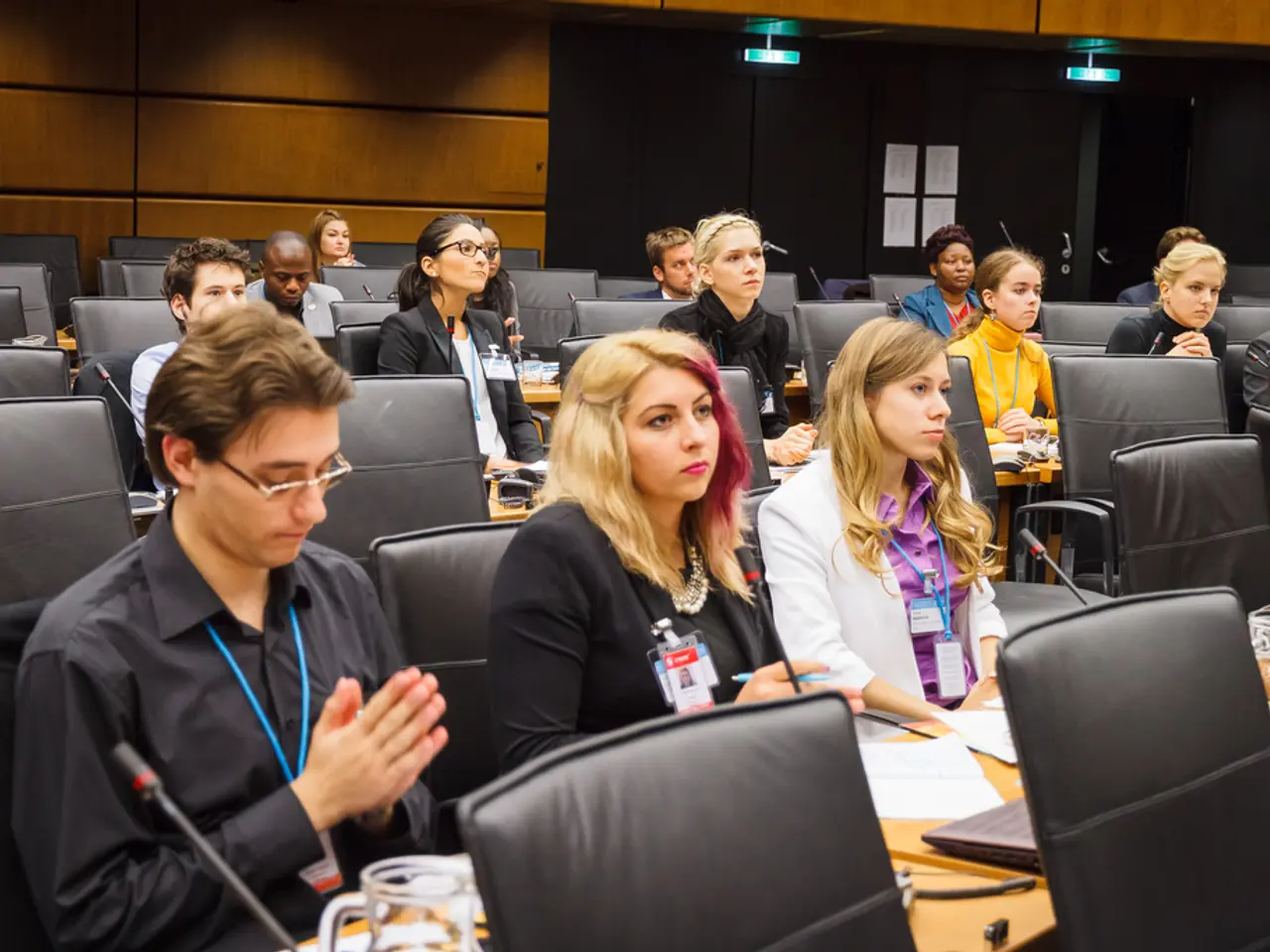Nvidia CEO Gains Audience with Trump and Obtains Approval to Resume Sales of AI Chips in China
In a significant development for the global AI landscape, Nvidia has announced plans to resume sales of its H20 AI chips in China, following assurances from the U.S. government that it will grant necessary export licenses. This decision reverses a previous ban imposed in April, which was linked to concerns about potential military applications.
The Trump administration's approval marks a major victory for Nvidia, whose CEO, Jensen Huang, has been actively lobbying for this outcome in both the U.S. and China. Alongside resuming H20 sales, Nvidia has also announced a new China-specific AI chip that is fully compliant with U.S. export rules.
Chinese firms such as ByteDance and Tencent are eager to purchase the H20 chips, with orders pending approval from the U.S. government. Nvidia has established a "whitelist" for potential buyers.
The resumption of H20 chip sales benefits Nvidia financially, potentially recovering from a significant inventory cost hit and missed sales due to previous restrictions. This economic boost could contribute to maintaining U.S. leadership in AI technology by allowing companies like Nvidia to invest more in research and development.
By continuing to sell AI chips in China while ensuring compliance with U.S. regulations, Nvidia maintains its global market presence and supports the U.S. goal of being a leader in AI. Jensen Huang has emphasized the importance of domestic job creation and onshore AI manufacturing in the U.S., which aligns with efforts to preserve America's competitive edge in AI.
The easing of tensions and trade restrictions between the U.S. and China, such as China's relaxation of rare earth export controls, suggests a more collaborative environment. This could lead to increased cooperation in AI development, potentially enhancing the U.S. position by fostering a more open and competitive global AI market.
Jensen Huang, in a statement made in Washington D.C., emphasized the importance of AI running on American hardware. He also highlighted the role of general-purpose, open-source research and foundation models in AI innovation. The H20 chip is a dialed-down version of Nvidia's powerhouse H100 semiconductor, built specifically for the Chinese market.
However, Nvidia is still banned from selling its most advanced chips to China due to national security concerns. Despite this, Nvidia's success in AI-related sectors has been a significant factor in Huang's personal wealth growth, which recently surpassed that of business titan Warren Buffett. Huang's fortune is just $1 billion shy of catching up to internet pioneer Sergey Brin.
This development underscores the importance of AI technology in driving economic growth and maintaining a competitive edge in the global market. As the world continues to embrace AI, it is likely that we will see more significant collaborations and advancements in this rapidly evolving field.
- The future of artificial-intelligence technology could see significant advancements as Nvidia, following U.S. government approval, resumes sales of its H20 AI chips in China.
- Gizmodo reports that Chinese firms like ByteDance and Tencent are eager to purchase these H20 chips, with orders pending approval from the U.S. government.
- Businesses like Nvidia, by ensuring compliance with U.S. regulations while maintaining a global market presence, can support the U.S.'s goal of being a leader in technology and general-news fields, such as AI and finance.
- The tech sector, particularly artificial-intelligence companies like Nvidia, can contribute to economic growth and prosperity, as shown by CEO Jensen Huang's vast personal wealth, which rivals that of business titans like Warren Buffett.
- As the world continues to invest in technology and artificial-intelligence, we might expect to see increased cooperation and collaboration between countries, creating a more open and competitive global market.




